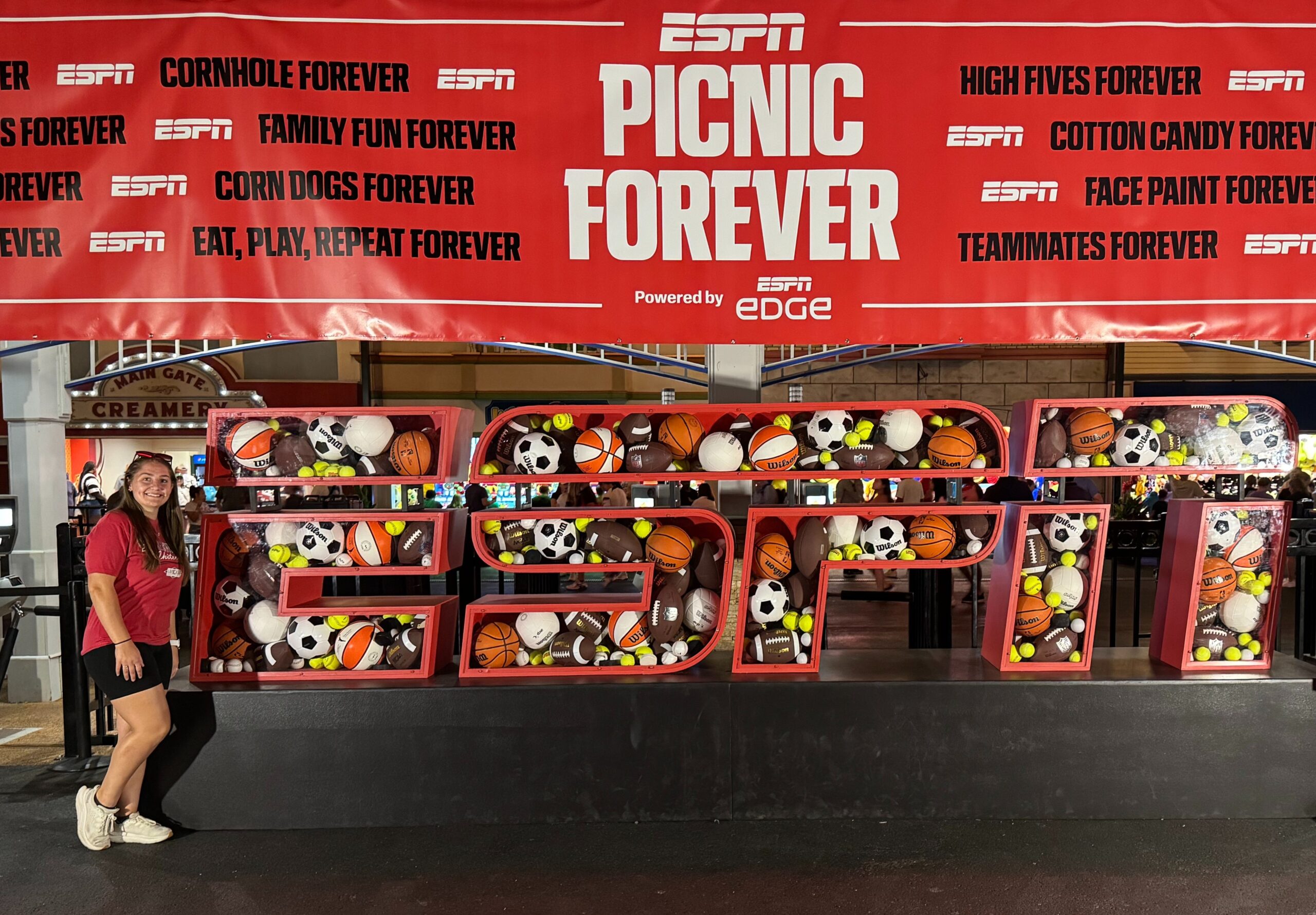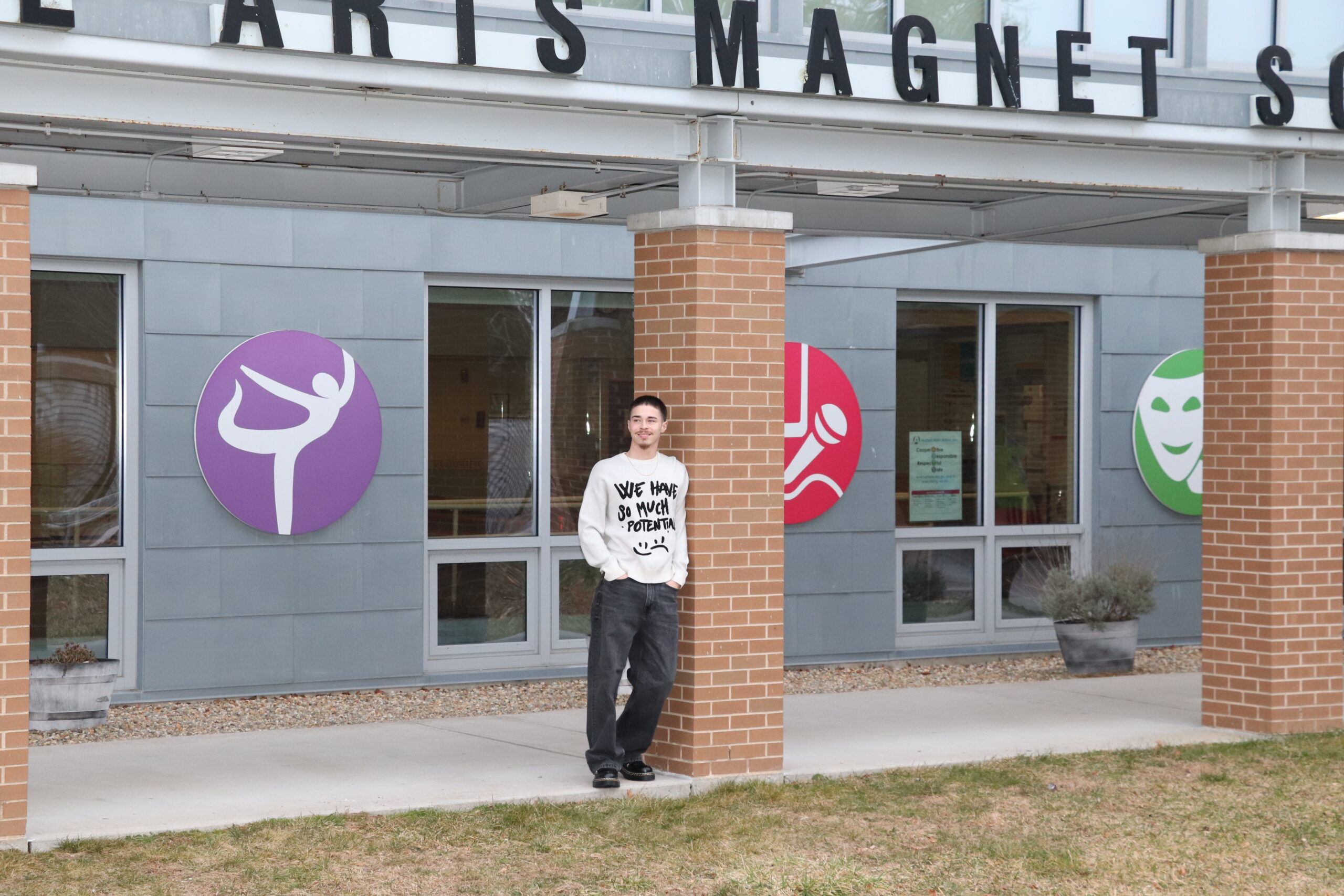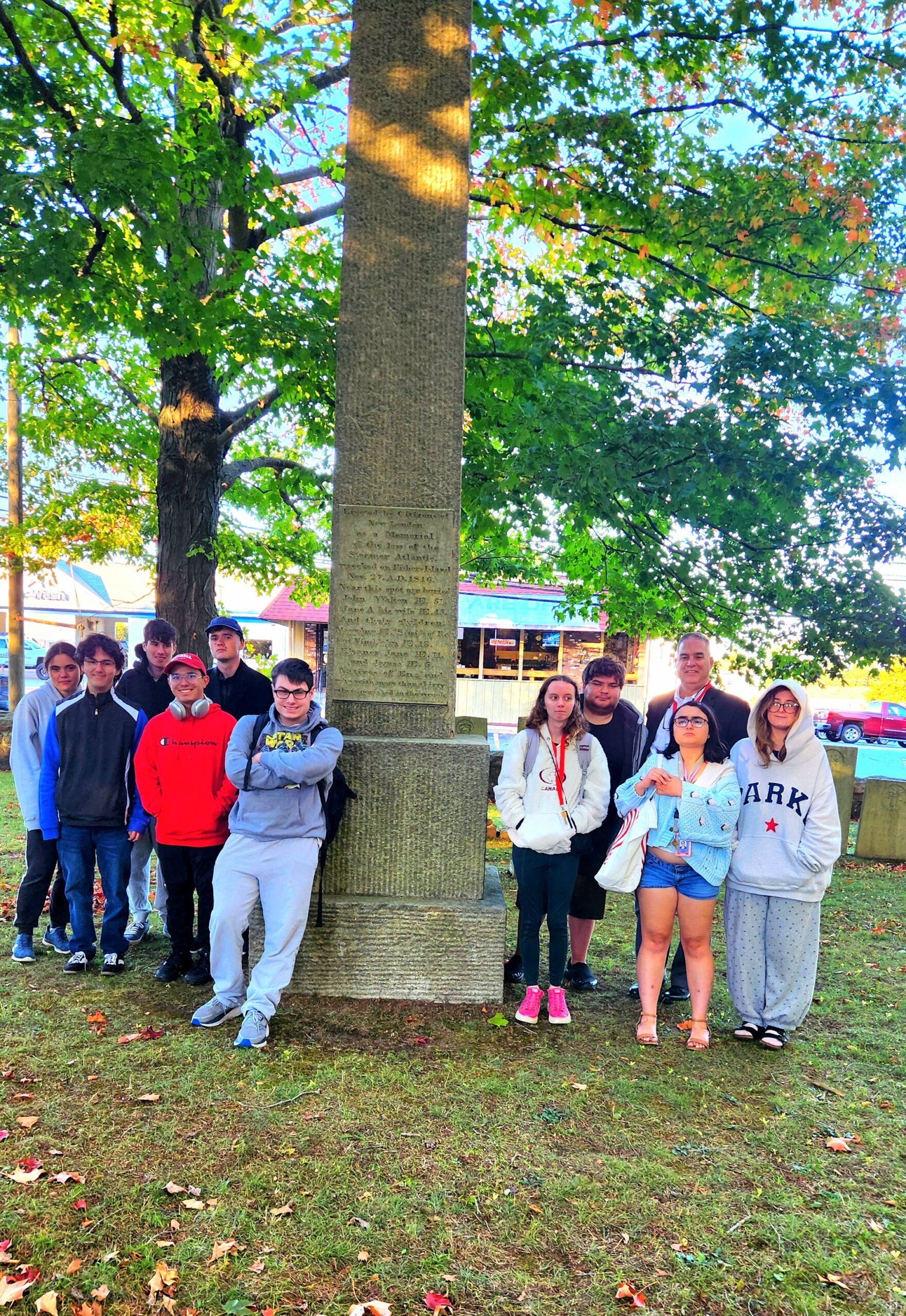The power of networking—and serendipity—helped Emily Reynolds ’25 land a job at ESPN, a dream since middle school. She began working as a Stats Analyst II at the network just after graduating from Mitchell College.
“ESPN is a hard company to get your foot in the door. When I was a student at Mitchell, I applied for an internship there, thinking it was a way in. I was upset when I didn’t get it,” she said.
Not one to give up on a challenge, Emily seized on another opportunity and ran with it.
“When I was a senior, my mom was having her hair done and talking about her kids. She mentioned that I wanted to work at ESPN after college. Her hairdresser said she knew someone in the Stats and Analysis department there. I emailed her contact with my background and interests. I offered to work in any capacity—full-time, part-time, volunteer—anything to get into the company.”
Mitchell builds foundation of confidence
Having the confidence to make that new connection and reach for her dreams comes from the foundation she built at Mitchell.
“Mitchell allows you to be you and create your own experience, using its amazing people who help you meet your goals. It pushes you to get out there, get to know others, and figure out how to communicate. When I first got to college, I was not the biggest fan of being away from home. I called home a lot and didn’t let myself be in the moment. But then, I stepped out of my comfort zone and made the experience the best it could be.”
Emily played Mitchell College softball, participated in the Honors Program, served as public address announcer for Athletics, and supported Admissions as a student ambassador.
A surprise before graduation
Just a few weeks before graduation, she was surprised to receive an email from her new contact at ESPN.
“I was on the team bus heading to a game in New Hampshire when the email came in. There was an opening in the Stats and Analysis department, and I was encouraged to apply. This was a huge opportunity. I filled out the application after my game, but my mom told me to go to bed first and then submit it with a clear head. I didn’t get out of bed the next day until I submitted it!”
Before securing the position, Emily participated in four Zoom interviews, including a 2-hour news observation. She didn’t step foot on the ESPN campus until her first day of work.
“My department produces stats that are used on Sportscenter, espn.com, and the ESPN app. In my role, I make sure the feeds from stadiums come into our systems correctly, so that fans and viewers see scores and stats properly. I cover all sports, from NFL and NBA to college football and basketball to professional hockey. The Olympics are also part of the lineup this year, which I am excited about. I enjoy the managed chaos of the job. Every day is different, and I am always learning something new.”
Feeling prepared
Emily, who majored in communication, draws on many lessons learned at Mitchell. She honed skills and developed a growth mindset.
“Mitchell prepared me in so many ways. I use a lot of Microsoft applications in my work and became proficient through my freshman Infotech class. The small, accessible size of the college encouraged me to make my experience my own and work my way into various leadership roles. I was softball team captain my junior year and president of the Mitchell Student-Athlete Advisory Council for two years, representing the school at the conference level as a voice for all Mitchell athletes. I also fostered skills that I use every day, from learning how to communicate with different people to adapting to problems in real time to reach a solution. Being part of a team means finding ways to win and achieve success for the benefit of everyone, not just a single person.”
She added, “Looking to take on new roles is also something that I am carrying over to my work at ESPN. I recently stepped up and offered to work with the Search Engine Optimization (SEO) director to enhance the college championship webpages. This is outside of my regular job responsibilities, but I want to be exposed to different areas in the company to personalize my experience there.”
Learning by ‘branching out, meeting people, asking questions’
As a Mitchell student, Emily completed a summer internship with the Cape Cod Baseball League. Working with a team, she met individuals representing both college and professional baseball, as many players were hoping to be drafted onto professional teams. She takes that experience with her.
“It’s cool because when I watched the draft, I saw a lot of kids from my team being drafted. It opened my eyes to how to cover the Cape Cod Baseball League at ESPN and makes me wonder how we could use SEO to cover a team.”
Eventually, Emily hopes to move her way into the position of sideline reporter or TV personnel on Sportscenter, her ultimate dream. Today she is happy to learn the ins and outs of her department and have fun while doing it.
“We do small but important and meaningful work. The departments located in my building deal with behind-the-scenes research and stats that go into the ear of a broadcaster or a graphic on Sportscenter. I’d like to move up through the positions across departments. I am thrilled to be learning about all the opportunities. The people are so nice and have similar interests. You can talk about a random sports thing and go down a rabbit hole.”
Reflecting on her journey to ESPN and how she plans to make the most of her experience, she said, “It’s amazing how opportunities come up. Branching out, meeting people, asking questions. That will serve me well and help me in my time there.”


